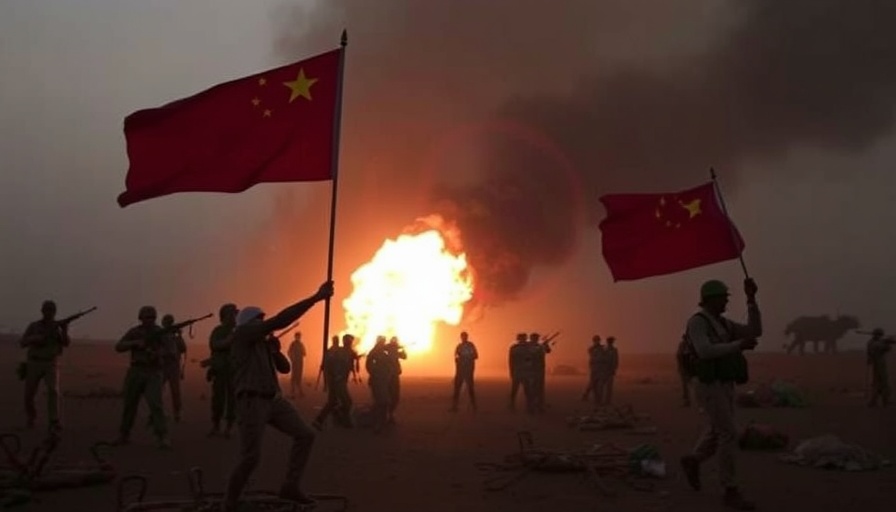
Devastation Escalates in Sudan Amidst Civil War
As Sudan grapples with an ongoing civil war entering its third year, recent military actions have seen the paramilitary group, Rapid Support Forces (RSF), engaging in drone attacks in previously secure regions. The intensification of conflict is marked by strikes in Kosti, White Nile State, and Port Sudan, threatening civilians and undermining hopes for stability.
Amnesty International Flags Arms Violations
In a worrying development, Amnesty International has raised alarms regarding the use of advanced Chinese-made weaponry in these hostilities, notably Chinese GB50A guided bombs and 155mm AH-4 howitzers. This revelation underscores a breach of the United Nations arms embargo on Sudan, with allegations of these sophisticated arms being rerouted from the UAE to the RSF. According to Brian Castner of Amnesty International, the situation paints a grim picture of international inaction while civilians suffer amidst the violence.
The Implications of foreign arms supply to groups like RSF
The implications of such foreign arms supplies are dire, extending beyond immediate military strategies to affect geopolitical dynamics in the region. The continued support of the RSF by external nations challenges the existing governance frameworks and highlights the urgent need for international scrutiny and action. With the call for an extension of the arms embargo to encompass the entirety of Sudan, the silence of global powers further exacerbates the violence, raising critical questions about responsibility and accountability on the foreign stage.
What This Means for Global Trade and Relations with Africa
The ramifications of the Sudanese conflict resonate deeply within the broader context of Africa's geopolitical landscape. As policymakers and investors monitor the evolving situation, the role of foreign relations, particularly in arms trade and economic support, becomes increasingly relevant. The alleged involvement of the UAE in supplying arms not only threatens the stability of Sudan but also jeopardizes Africa’s image in global trade dialogues and foreign investments, essential for fostering economic growth.
Civilian Impact: A Humanitarian Crisis Unfolding
With casualties mounting and humanitarian needs escalating, the voices of Sudanese civilians become central to the narrative. As armed factions clash, the human toll of this conflict must not be overlooked. It is imperative for citizens around the world, particularly in regions that engage with African nations, to recognize the profound consequences of allowing such conflicts to persist unaddressed. Engaging in dialogues about peace and stability is not merely an issue of security; it's a moral imperative tied to global governance and trade relations.
 Add Row
Add Row  Add
Add 


Write A Comment